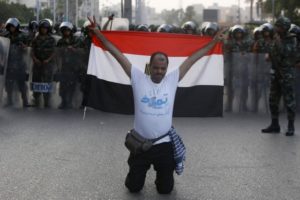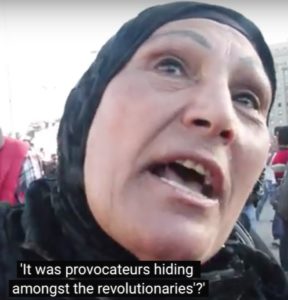Activism

Mona Baker
Entry for the AHRC Translating Cultures Glossary (forthcoming)
Activism is generally understood to designate a broad range of direct and indirect interventions aimed at provoking political or social change. It is often assumed to be the preserve of left-wing politics, but many right-wing groups also see themselves as activists engaged in changing society for the better: Baker (2018:453) offers the example of the Zionist Organization of America, which describes itself as “Always on the front lines of pro-Israel activism”. For all those who proclaim themselves to be activist or designate others as such, a common assumption is that activism is inherently partisan: being an activist means taking sides and openly holding strong views in relation to an issue or range of issues, often leading to confrontation with other members of society and/or the establishment. This assumption is anathema to the translation profession and discipline, and continues to complicate the relationship between translation and activism.
Professional codes of practice and traditional theories of translation have long eschewed partisanship as unethical, insisting that translators and interpreters have an obligation to remain neutral and refrain from intervening in the interactions they mediate. Despite more nuanced discussions of the ethics of translation in recent years, dominant conceptions of translation continue to militate against the idea, not so much of activist translators but of translators allowing their activism to seep into their practice, to be reflected specifically in textual interventions. In the context of the Egyptian Revolution, volunteer subtitlers working with groups of filmmakers did not shy away from involvement in various forms of direct action alongside the activists with whom they collaborated. But in terms of their actual subtitling choices, the same translators tended to play by the rules of non-activist translation practice. At times their reluctance to step outside their traditional role as detached ‘transmitters’ of textual material undermined the principles of the political project to which they were committed (Baker 2016:16). Volunteer subtitlers working with the two collectives examined in the AHRC-funded Translating the Egyptian Revolution project – Mosireen and Words of Women from the Egyptian Revolution – tended to focus on the semantic content of the speech of those depicted in activist videos, without considering the implications of their choices for the wider political agenda. In one instance, rather than flout the conventions of traditional subtitling by reproducing low-register spoken language in writing, they rendered the speech of an uneducated speaker interviewed on the street, in the heat of the revolutionary moment, into a high register of English, putting words like provocateurs and fig-leaf into her mouth.

Mosireen’s ‘Why Riot’ Video: Choice of provocateurs
Similarly, in subtitling interviews with a diverse range of Egyptian women – some highly educated and others less so, some devout and others secular, old and young, Christian and Muslim – the specificity of individual voices and life experiences was often lost through lack of attention to features such as code-switching. Highly educated interviewees who interspersed their Arabic speech with stretches of English were subtitled into the same indistinctive Spanish as other, less educated interviewees. These choices cumulatively undercut the principle of diversity that is central to the work of both Egyptian collectives, as well as global movements of justice more widely. In effect, they streamlined the diverse voices of those involved in a momentous historical moment of great turmoil into a largely sedate, homogenous voice of an educated section of society.
Interestingly, the first item under ‘Translation Issues’ in the Mosireen guidelines for subtitlers reads “There is plenty of theory out there about objectivity and shit like that but for Mosireen videos subtitling should not be literal” (Mosireensubtitling list, 25 February 2014). When interviewed, some of the subtitlers reiterated the same position: “No one in Mosireen has any pretence to being neutral and the subtitling is just an extension of that” (Katharine Halls, interviewed 30 January 2014); “Why would anybody want to be neutral? … what does that actually mean, neutrality in translation?” (Samah Selim, interviewed 24 December 2013). These assertions point to one of several types of tension between the (admittedly limited) reflection on translation that occurs in activist circles on the one hand, and actual translation choices on the other; in this case between the claim to the right of translators to make decisions based on activist principles, and their reluctance to do so in practice.
Another tension that characterises the way in which translation is embedded in an activist vision of a world shaped by principles of solidarity, diversity and non-hierarchy concerns the choice of languages into and from which activist material is translated. The priority in various global and place-based movements continues to be given to translating into and out of the traditional colonial languages, hence reproducing existing language hierarchies and further marginalising the voices of those unable to function within them. The European Social Fora held in Florence (2002) and Paris (2003) both designated English, French, German, Italian and Spanish as official ESF languages to be prioritised for translation, justifying the decision on the basis of market supply and demand (Hodkinson and Boéri 2014). A similar pattern could be observed in the subtitling practices of Mosireen and Words of Women from the Egyptian Revolution. English was not only the default language into which all videos were immediately subtitled, but also functioned as a basis for subtitles produced in other languages. This pattern mirrored the default practice of the film industry and the corporate world – where English is routinely used as a pivot language – and unwittingly allowed “a colonial language that is deeply implicated in the processes of subjugation and misrepresentation activists are fighting against to function as a filter for values expressed by the diverse characters depicted in the videos” (Baker 2016:10). Here, as in other areas of activist practice, political principles had to be adapted to the reality of what was readily available and doable in a moment of crisis.
The tension between politics and logistics manifested itself in other ways in the work of volunteer subtitlers during the Egyptian Revolution, further compromising the potential for translation to play a transformative role. Technology empowered activist groups and allowed them to collaborate on producing subtitled versions of documentary videos quickly on free platforms such as Amara. But it also blocked any attempt at adapting conventions such as the strict placement of a single subtitle in the centre of the lower part of the screen, in order to experiment with different, more emotive layouts. Reliance on Youtube as the most effective means of disseminating the collectives’ output meant that the subtitles had to be produced in .srt format, which does not support any level of experimentation. Other political misgivings about Youtube as the outlet of choice also had to be suppressed in favour of logistical expedience.
Ultimately, the potential for translation to play a transformative role in protest movements will always be shaped by the tension between politics and logistics that forms part of the dynamics of all activist initiatives. But the nature of this dynamic does not obviate the need for more conscious, critical engagement with translation in this context.
References
Baker, Mona (2016) ‘The Prefigurative Politics of Translation in Place-based Movements of Protest: Subtitling in the Egyptian Revolution’, The Translator 22(1): 1-21.
Baker, Mona (2018) ‘Audiovisual Translation and Activism’, in Luis Pérez-González (ed.) The Routledge Handbook of Audiovisual Translation, London & New York: Routledge, 453-467.
Hodkinson, Stuart and Julie Boéri (2004) ‘Social Forums after London: The politics of language’, Red Pepper, 1 December. Available at https://www.redpepper.org.uk/Social-forums-after-London-The/.
Further reading to stimulate reflection
Baker, Mona (ed.) (2016) Translating Dissent: Voices from and with the Egyptian Revolution, London & New York: Routledge.
Baker, Mona (2018) ‘Audiovisual Translation and Activism’, in Luis Pérez-González (ed.) The Routledge Handbook of Audiovisual Translation, London & New York: Routledge, 453-467.